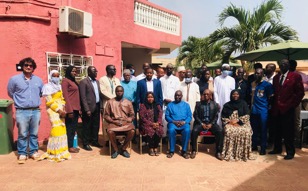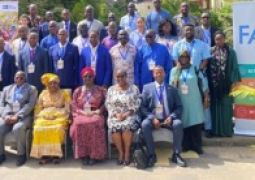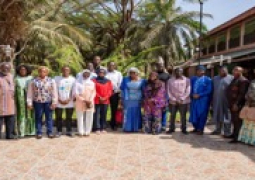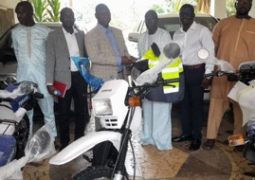
The project dubbed ‘Gambia Inclusive and Resilient Agricultural Value Chain Development Project (GIRAV)’, is fully funded by The World Bank.
The five-year project seeks to empower agricultural value-chain development and to move The Gambia from subsistence to more market-oriented agriculture.
At the gathering, Abdoulie Touray, project coordinator CPCU, made it clear that when it comes to agriculture, finance is always the issue, which is why a component from the project worth $9 million is set aside for the SMEs and individuals to help promote and improve their businesses.
Touray acknowledged that agricultural output covers only half of the country’s domestic consumption needs, with decreasing food production per capita leading to increased food imports with the resulting risk of facing severe food security issues at both household and national levels.
“The agriculture and agribusiness sector in The Gambia is hampered by a number of constraints that need to be addressed in order to unlock the potential of the agriculture and agribusiness sector. Key among the challenges include, weakly organized-value chains; limited access to finance; limited access to input and technologies; inadequate marketing infrastructure and lack of adequate transport infrastructure and services.
Touray maintained that as part of efforts aimed at addressing these and other related challenges hampering the sector and overall national development targets, the Gambia government in close partnership with the World Bank formulated the GIRAV project.
“This intervention will support new approaches that are required to break the vicious circle of an agriculture and agribusiness sector that has been historically locked into low productivity of small farms with limited access to market, finance, technologies as well as being largely vulnerable to climate and weakly organized value chain.”
Read Other Articles In National News





